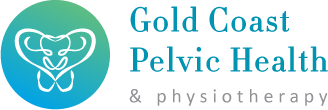
Bowel
problems
Patients with Bowel Problems can often feel at a loss with their Bowel problems.
These problems are often challenging to self manage and finding answers seems mysterious!
I have a special interest in Bowel Problems and as a result I created the holistic and integrative "Happy Bowels Program" from a background of many years of clinical experience knowledge from extensive advanced training in the assessment of colonic and anorectal problems to help my patients in the most effective and empowering ways. This service is a holistic service that provides an evidence based and integrated approach to pain in a multidisciplinary setting with GPs and Specialists.
Conditions treated:
-
Functional Constipation
-
Irritable Bowel Syndrome (Diarrhoea, Constipation and mixed)
-
Functional bloating
-
Functional diarrhoea
-
Functional Abdominal pain
-
Faecal and Flatus Incontinence
-
Faecal urgency
-
Pelvic floor Dyssynergia and incoordinate defecation and perineal descent syndrome
-
Pre and post‐operative care – colorectal cancers, Anorectal surgeries, Ileostomy reversal
The Gold Coast
Gastroenterology and Colorectal
Pelvic Health Clinic:
The program Aims to educate you about your condition and provide daily bowel management strategies and corrects misinformation about bowel function.
The program with help you with a bowel routing, how to toilet better through biofeedback and provides highly skilled pelvic floor muscle awareness and training for strength and relaxation of the pelvic floor muscles relating to your problem with biofeedback using ultrasound or balloon training. This is a type of biofeedback and is used to teach the muscles (and the brain) how to perform the correct acons of ‘emptying’ or ‘holding on’. It also helps to train bowel sensation – recognising a proper urge to go to the toilet. This treatment is safe and evidenced based and is able to detect clinical change in symptoms and improvement.
The program will provide you with assistance with diet and medication – learning how to manage without bowel medications/laxatives or how to use them more effectively. Diet therapies are also an important part of the program and may include Low FODMAPs diet assessment, elimination and fodmap rechallenge and individualization/implementation of the FODMAP diet and long term management, Meal plans and eating out options.
Additionally Non‐diet therapies‐ cognitive behavioural therapy, gut‐directed relaxation: Relaxation strategies using training in Mindfulness Based Cognitive Therapy.
About The Happy bowels therapy program



